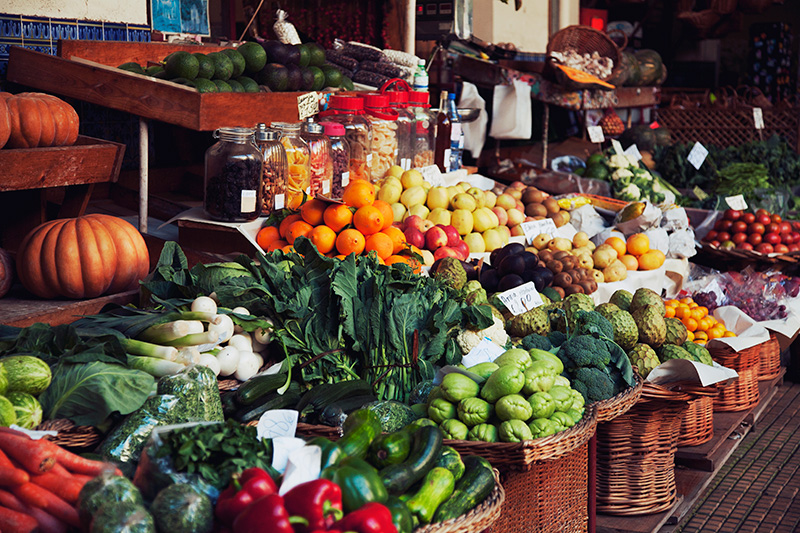
How to Make Your Own Stock
Making your own homemade stock (also known as broth) is a great way to use up scraps while filling your meals with fresh, seasonal flavor. Stock is a flavorful liquid made with water, vegetables, seasonings, and sometimes proteins.
Making stock is really easy! The base of all stock is vegetables. Use ends, scraps, and leftovers that often otherwise get thrown away. Save scraps for stock in a resealable bag in the freezer until you are ready to make the stock in order to avoid products going bad.
Fill a large pot about 3/4 full with chopped vegetables and other ingredients (see below). Fill the rest of the pot with cold water and simmer for 2-6 hours. Taste the stock throughout to check for flavor. If it seems weak, keep letting it simmer.
Make a large batch and freeze in smaller, resealable bags or plastic containers for later use. Pour the stock in the bag until it’s about 2/3 full, then seal it and lay it flat in your freezer. When you need to use it, just pull a bag out of the freezer. Allow to thaw in the refrigerator or defrost in the microwave.
The benefits of using your own stock include less waste of food and money. It also has no added sodium or preservatives and has a better, fresher taste than store-bought.
Stock = Vegetables + Aromatics + Protein (optional)
|
Vegetables |
Aromatics |
Proteins |
|
| Comment | Vegetables are the core of all stocks. You can use what you might usually throw away to build your stock instead. | Use aromatics, including herbs and spices, to add an extra pop of flavor to your stock. | Protein variations can include chicken, seafood, or other meats for a unique flavor boost, depending on your application. |
| Use | Carrots (peels ok), onions, garlic (skins, too!), celery, peppers, tomatoes, mushrooms, mild flavored greens such as spinach | stems and leaves of parsley, thyme, basil, whole peppercorns, bay leaves | Chicken or turkey carcass/bones (use leftovers after roasting), shrimp/prawn peels, lean fish bones & heads, ham bones |
| Don’t Use | citrus, cabbage, broccoli, cauliflower, pepper seeds, potato scraps, asparagus, brussels sprouts, bitter green vegetables | cilantro/coriander, citrus, rosemary, lemongrass (too strongly flavored) | Strongly flavored fish, fatty fish bones such as salmon and trout |
Great food that just happens to be great for you!
Explore hundreds of recipes, articles and advice here.




